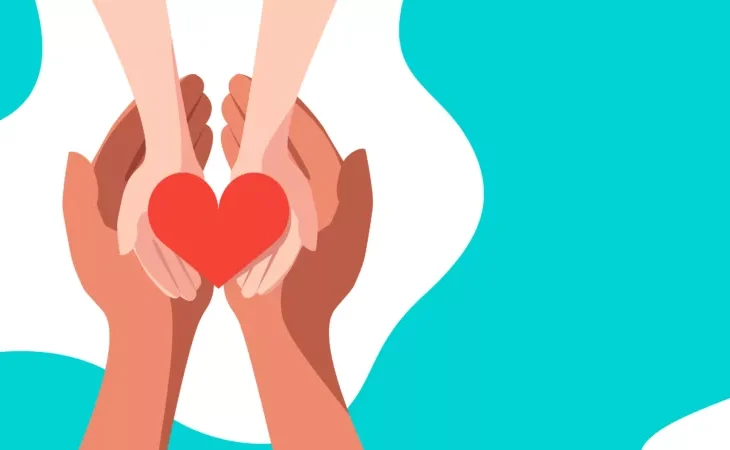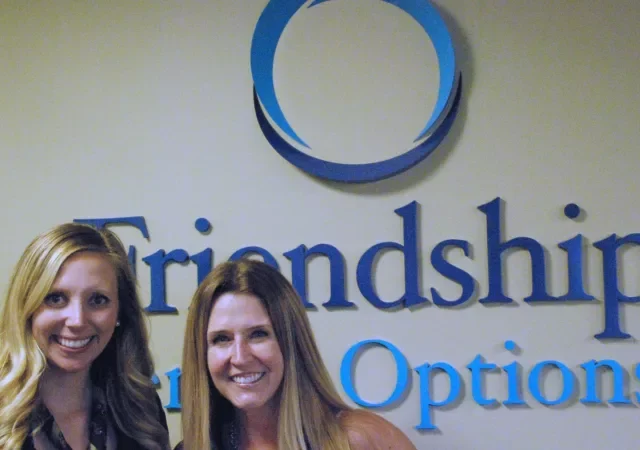At the end of “A Streetcar Named Desire,” Blanche DuBois observes that she has “always depended on the kindness of strangers.” And while her circumstances were anything but ordinary, most of us have benefitted at one time or another from the thoughtfulness of people we don’t know well or at all.
At GreenFields, we’ve benefited from the kindness of members of our community, local individuals and organizations, and programs that exist to extend goodwill far and wide. Over the last year, as COVID-19 forced major changes in the way we live our lives, our community has benefited from kind volunteers who stepped forward to help residents with various technology challenges, Geneva-area neighbors who connected with our community by sending letters through the Pony Express Pen Pal Program, and young family members of resident Eva Dunn, who delivered seasonal handmade gifts.
On a national basis, the Random Acts of Kindnessprogram encourages participants to“make kindness the norm” in their schools, workplaces, homes and communities.
This year, Random Acts of Kindness Day will be observed on February 17 by so-called RAKtivists who commit to offering small acts of kindness, such as giving a compliment to a stranger or posting a positive comment on a website or social media post. During last year’s Random Acts of Kindness Day, the Regional Office of Education in Kane County encouraged teachers to have their students thank the school custodians for their efforts.
A similar global effort has been spearheaded since 1998 by the World Kindness Movement. On the annual World Kindness Day, which falls on November 13, the goal is to highlight good deeds in the community. During last year’s observance, local residents were encouraged to donate food to the Northern Illinois Food Bank in Geneva in support of the Feeding America program, with which it is affiliated.
There’s a reason kindness is getting the spotlight, and it isn’t just because it makes life so meaningful for those on both the giving and receiving end of it. Kindness is every bit as contagious as a certain virus, and even small acts of goodwill reverberate throughout a community. Researchers find that people can “catch” generosity from others, with subjects who observed the generosity of others becoming more generous themselves.
Kindness also boosts happiness. According to one experiment, people who performed acts of kindness over seven days said they felt happier. Researchers found a correlation between the number of kind acts performed and the level of happiness reported. Another analysis of several studies determined the kindness centers of the human brain literally light up when people perform acts of goodwill, particularly if those acts are altruistic.
And because they narrow the emotional distance between individuals, acts of kindness serve to bond people together, improving human relationships.
But the benefits of kindness extend beyond emotional and social well-being. Being kind also makes you healthier, according to several studies. It promotes the release of the hormone oxytocin, which not only enhances affection and bonding but also reduces blood pressure. Further benefits include a stronger immune system, less inflammation and a healthier heart rate. And because habitual kindness fosters a sense of purpose, practitioners are more likely to pay closer attention to self-care. People who regularly take time to be kind also experience less anxiety, depression and COVID-related stress-as well as pain relief due to an increased level of feel-good endorphins. Some people also report a greater sense of calmness, more energy and a “helper’s high.”
So how can you cultivate kindness in your own life? Fortunately, there are many simple ways to express consideration and goodwill, from leaving an uplifting note on a neighbor’s door and expressing gratitude to someone who is helpful to sending a “thinking of you” card to a friend or bestowing a warm smile on an acquaintance or passerby.
Kindness may just be the gift that keeps on giving and there is no time like the beginning of a fresh new year to resolve to share it. Perhaps 2021 can become the Year of Kindness-and what could be a better antidote to COVID-19 than that?


